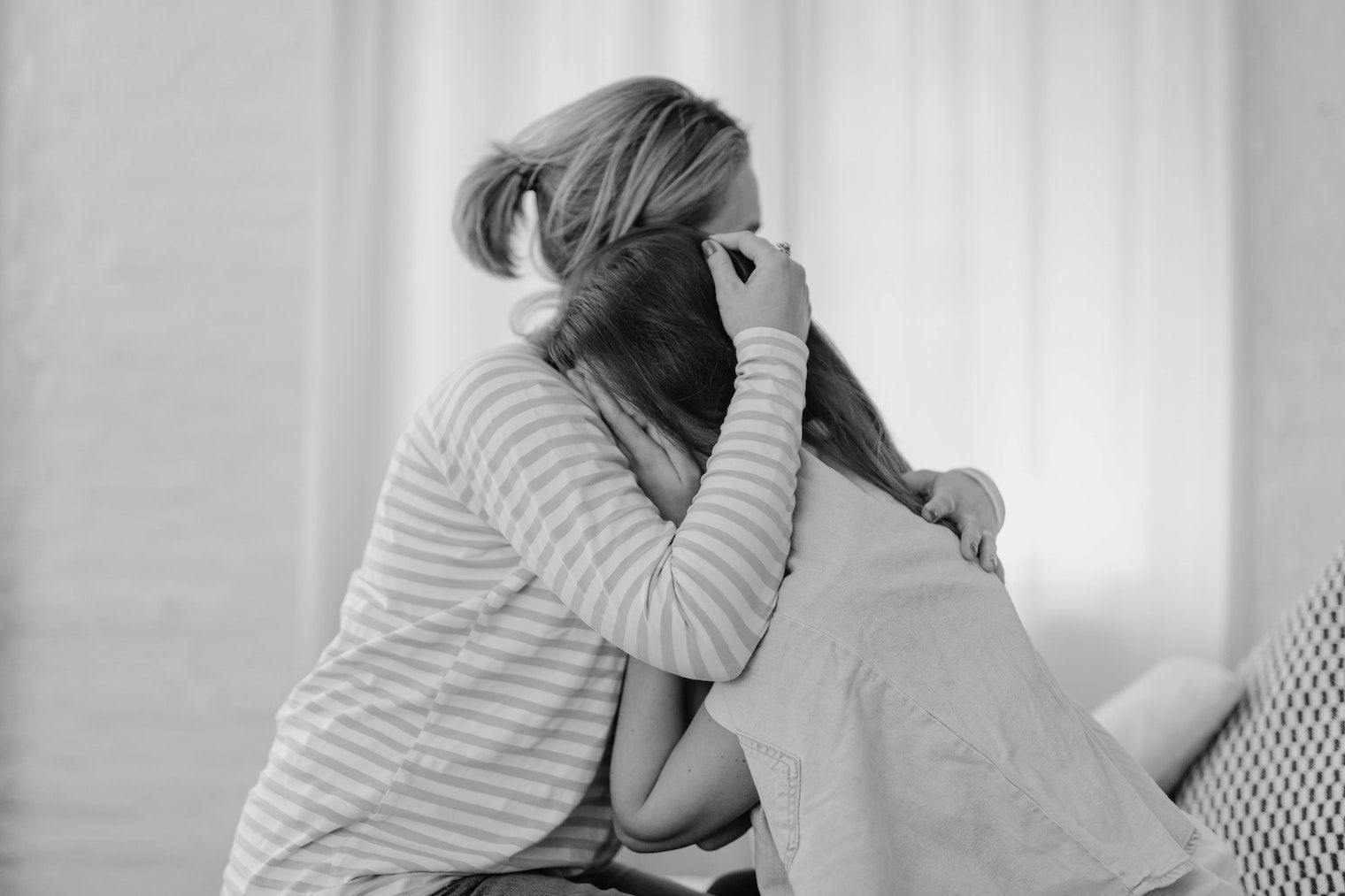
It can be incredibly tough to see your child going through self-harm. From a mother who has experienced it herself, we share steps for supporting them on their journey
When my child was 10, I discovered they were self-harming. I want to give other parents a list of things that have helped me and my child in the terrifying journey that self-harm can be. This is that list:
1. Listen
As Carrie McColl, a counsellor specialising in self-harm explains, listening is the most important thing to do. “Your child may not always have the words to express what they’re feeling, but tone of voice, body language, and behaviour can speak volumes,” she says.
It can be a tough conversation to have, but a needed one. “If your child has disclosed the self-harm to you, thank them for being so brave and honest,” Carrie continues. “If it’s been discovered in a different way, try to gently approach the subject in terms of making sure wounds are clean, and seeing if medical attention may be needed.”
2. Choose how you want to deal with the self-harming and the wounds
It’s a hard thing to say to a parent who has just discovered something so heartbreaking, but it is up to you to choose how you want to deal with the self-harming of your child. From removing sharp objects to cleaning wounds, there are many ways that can help you feel more in control.
As Carrie says, “Self-harm is much more than just cutting, and if someone wants to hurt themselves, they will quite often find a way.” There is no better way to deal with it than another, only a difficult choice to make to ensure your child feels safe.
3. Find an alternative
Depending on why your child self-harms, and their age, there are lots of different coping mechanisms that can be tried: elastic bands, red pen, butterfly drawings (check out the Butterfly Project, butterfly-project.tumblr.com).
Carrie says: “Distraction can be useful, as it helps to learn that the urge to self-harm will pass. If your child can agree to it, ask that they let you know when they have the urge, and then work together on ways to distract them until the feeling passes. Most of the time, if distractions are working, the urge will have gone.”
4. Don’t define them with self-harming
Tell the school, your friends, your family. Self-harming should not be taboo, but you don’t want it to become their only identity. Continue defining them with the activities they love, and show them that self-harming doesn’t change the way you see them.
“Try not to dismiss what they’ve done, or minimise it, and avoid using words that could compound their feelings of shame or failure,” Carrie adds.
5. Be OK with not getting answers
“Try to avoid a string of questions about it, as children hate being quizzed at the best of times,” Carrie says. Ask yourself what you really need to know, but also go within and be honest with yourself – are you ready for the answers?
6. Ask them to come to you
If they are to self-harm again, and they almost certainly will, ask them to come to you, so you can assess the situation and see how it can be treated. This will help your relationship grow stronger, and build honesty and trust between you and your child. But also be prepared for that not to happen. Be patient, and don’t hover around waiting for them to need you.
7. Seek help for both of you, and for the entire family, if needed
“Keeping an open and safe space to talk will be key for everybody in the house,” Carrie says.
If you can’t afford therapy for everyone, seek help for your child, look into local services as some areas offer support specifically for those who self-harm, and maybe read the book Helping Teens Who Cut by Michael Hollander.
8. Love
And finally, love your child even more. Show them you do. Be present. And don’t forget to find joy in the little things.
“And parents, never forget the importance of looking after yourself!” Carrie says. “Seeing our children in pain is the worst thing, and it can be so easy to be consumed by making sure they’re OK. You are a person too, and doing things that keep you happy and calm is even more important in this situation.”
You’ve got this. I know you do. Because I did, even when I thought I didn’t.
For further information on self-harm, visit the Counselling Directory or speak to a qualified counsellor.

